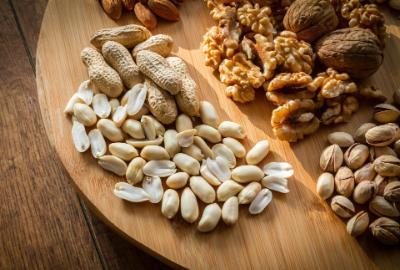Salt and the Older Population
A high salt intake over time can raise blood pressure, which increases the risk of having a heart attack or stroke. However, blood pressure increases with age and so as you get older it is important to keep salt intake as low as possible to help ensure your blood pressure stays within a healthy range.
In addition, as we get older we become more sensititve to salt which means that salt has a greater effect on blood pressure. Therefore, reducing the amount of salt eaten can help in older age, even in those without high blood pressure. 
Strokes, heart attacks and heart failure
These are the most common causes of death and disability in the UK, and the risk increases with age. It is therefore important to keep blood pressure under control through changes to lifestyle, medications that treat high blood pressure, and most importantly through eating a low-salt diet.
Osteoporosis
Osteoporosis, which causes bones to more easily break, has been associated with a high salt intake. The older population are at greater risk of osteoporosis because bones naturally become thinner with age. Post-menopausal women are particularly at risk of osteoporosis due to the decrease in their female hormone (oestrogen) levels. There are approximately 3 million people in the UK with oseoporosis, with 1 in 3 women and 1 in 5 men over 50 suffering an osteoporotic fracture.
A high salt intake can cause calcium to be lost in urine which can weaken bones. It is believed that patients with high blood pressure pass more calcium in the urine and are therefore at higher risk of osteoporosis.
Cognitive Decline
In people with low physical activity level, a low salt diet may benefit brain health as you get older.
Advice
As you get older it is important to make changes to your diet, including reducing salt intake. By using the advice below people can help to reduce their risk of getting high blood pressure or if they already have high blood pressure, help to lower their blood pressure. 
• Reduce the amount of salt added to food in cooking and at the table and try using alternatives for seasoning such as black pepper, herbs and spices. It will only take a couple weeks for you to adjust to the taste
• Avoid eating too much processed food as this accounts for 75% of our salt intake (e.g. bread, pies and pastry products, ready meals, soups, sausages, baked beans, pizzas, stews)
• If possible make meals from scratch, using fresh and frozen ingredients (e.g. homemade bread, homemade pies, casseroles, fresh meat and products with no added salt).
• For snacks, try eating unsalted nuts or homemade fruit bars, or scones as these make good low salt snacks.
• Remember to check the nutrition labelling when shopping, and look for products that contain less than 1.5g salt per 100g.
To further reduce their risk of getting high blood pressure, heart disease and strokes everyone should make sure they eat at least 5 portions of fruit/vegetables per day, increase the amount of exercise they do (at least 30 minutes, 5 times a week) and reduce the amount of saturated fat they eat. People who are overweight should try and lose weight and people who smoke should stop.


